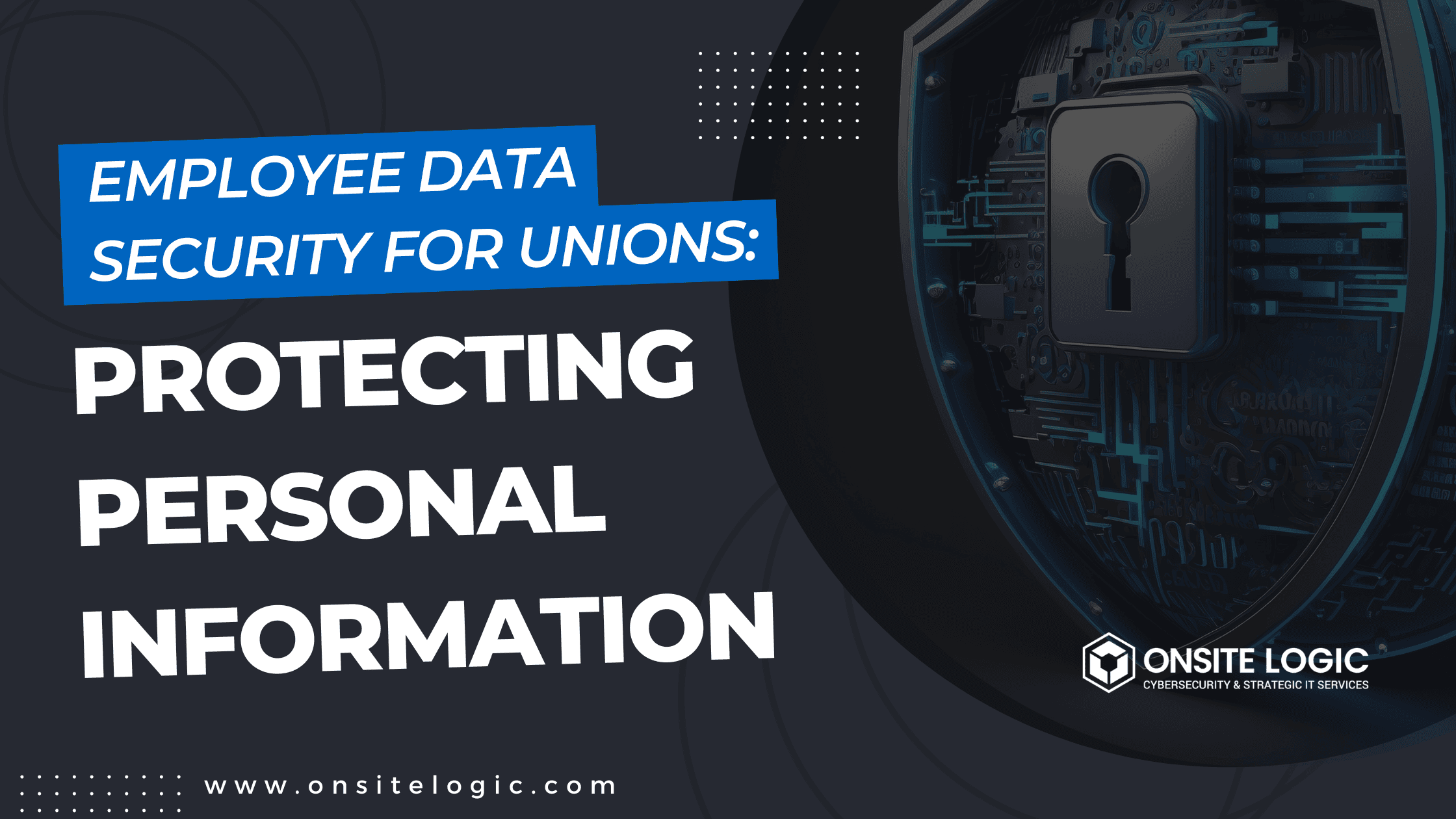With the rise of cyber attacks targeting benefit offices and other union entities, ensuring data protection has become a top priority. This blog aims to delve into the importance of securing employee data in labor unions and provide practical tips on how to protect it from cyber threats.
Importance of Data Security for Labor Unions
Labor unions handle vast amounts of sensitive employee data, including personal information, financial records, and healthcare information. This data is often targeted by cybercriminals seeking to steal identities or disrupt union operations. A data breach can not only result in financial losses but also damage the reputation and trust of the union among its members.
Cybersecurity Best Practices for Labor Unions:
- Use Strong Passwords: Implementing strong, unique passwords with multi-factor authentication (MFA) for all accounts and regularly updating them can help prevent unauthorized access.
- Keep Software Updated: Regularly updating software and applications helps protect against vulnerabilities that could be exploited by cybercriminals.
- Encrypt Sensitive Information: Encrypting sensitive data both in transit and at rest can prevent unauthorized access even if the data is intercepted.
- Conduct Regular Security Audits: Regular security audits can help identify and address vulnerabilities in the union’s systems and processes.
Data Protection for Labor Unions:
- Implement Data Encryption: Encrypting data ensures that even if it is intercepted, it cannot be read without the encryption key.
- Use Secure Communication Protocols: Secure communication protocols, such as HTTPS, protect data transmitted over the internet from being intercepted by cybercriminals.
- Restrict Access to Sensitive Information: Limiting access to sensitive information to only those who need it can help prevent unauthorized access.
- Have Data Retention and Disposal Policies: Implementing policies for data retention and disposal ensures that data is securely managed throughout its lifecycle.
Common Cyber Threats in Benefit Offices:
- Phishing Attacks: Phishing attacks use fraudulent emails or messages to trick individuals into providing sensitive information.
- Malware Infections: Malware, such as viruses and ransomware, can infect systems and encrypt or steal data.
- Ransomware Attacks: Ransomware encrypts data and demands a ransom for its release, often causing significant financial losses.
Mitigating Cyber Threats:
- Multi-Factor Authentication: Implementing multi-factor authentication adds an extra layer of security by requiring users to provide multiple forms of verification.
- Security Training: Providing regular security training for employees can help them recognize and avoid common cyber threats.
- Secure File Sharing Platforms: Using secure file sharing platforms that encrypt data can protect sensitive information from being intercepted.
FAQs:
Q: What should I do if I receive a suspicious email?
A: If you receive a suspicious email, do not click on any links or download any attachments. Report the email to your IT department or delete it immediately.
Q: How often should I change my passwords?
A: It is recommended to change your passwords regularly, at least every 90 days, to help protect against unauthorized access.
Q: What should I do if I suspect a data breach?
A: If you suspect a data breach, report it to your IT department or union leadership immediately. They can take steps to mitigate the breach and protect sensitive information.
Q: How can I protect my computer from malware?
A: To protect your computer from malware, ensure that your antivirus software is up to date, avoid clicking on suspicious links or downloading attachments from unknown sources, and regularly scan your computer for malware.
Securing employee data in labor unions is paramount to protect against cyber threats. By implementing cybersecurity measures, developing comprehensive policies, and educating employees about cybersecurity best practices, unions can safeguard sensitive information and prevent data breaches.

